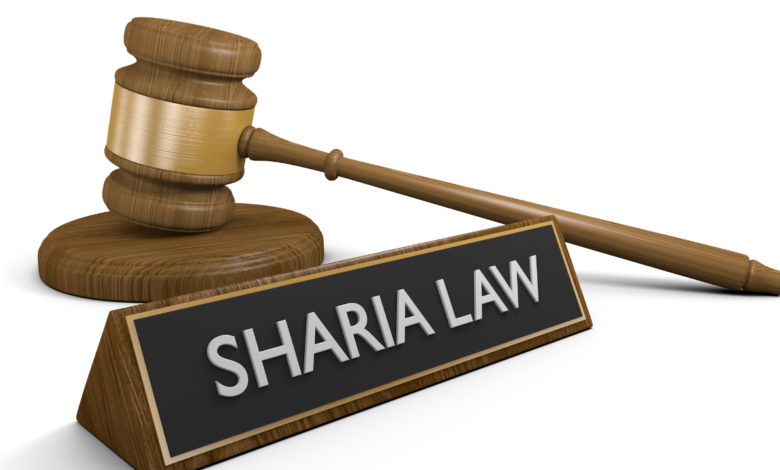Principles of Sharia law
Deciphering the Core Principles of Sharia Law: A Comprehensive Guide

Principles of Sharia law
Sharia law, often simply referred to as Sharia, is a comprehensive system of religious and moral principles that guide the lives of Muslims. It encompasses various aspects of life, including personal conduct, family matters, and social justice, based on Islamic teachings.

Introduction
Sharia law, often referred to simply as Sharia, is a comprehensive set of religious and legal principles that guide the lives of Muslims. Rooted in the Quran and Hadith, it governs various aspects of life, including personal conduct, family matters, and social justice. Sharia is a complex and multifaceted system, often misunderstood or misrepresented in the media. In this article, we will delve into the core principles of Sharia law, shedding light on its key tenets and their significance in the lives of Muslims.
Divine Origin
At its core, Sharia law is believed by Muslims to be divinely ordained. It is derived from two primary sources: the Quran, which is considered the word of God as revealed to the Prophet Muhammad, and the Hadith, which are the sayings, actions, and approvals of the Prophet. These texts provide the foundation upon which Islamic jurisprudence is built.
Also check.
- Why is Jerusalem Important to Islam?
- When is 12 Rabiul Awal?
- What is a Prophet?
- What is Shirk in Islam
- What is Hell in Islam?
Tawhid: The Unity of God
One of the fundamental principles of Sharia law is the concept of Tawhid, which affirms the absolute unity and oneness of God (Allah). Tawhid serves as the foundation of Islamic theology and has implications for all aspects of a Muslim’s life. It emphasizes monotheism and the rejection of idolatry or polytheism.
Ijma and Qiyas: Consensus and Analogy
In addition to the Quran and Hadith, Sharia law also incorporates the principles of Ijma (consensus) and Qiyas (analogy). Ijma refers to the consensus of Islamic scholars on legal matters that are not explicitly addressed in the Quran or Hadith. Qiyas, on the other hand, involves the use of analogy to derive legal rulings from existing Islamic sources. These principles allow for flexibility in the interpretation of Islamic law to address contemporary issues.
Five Pillars of Islam
Sharia law is closely associated with the Five Pillars of Islam, which are the core practices and beliefs that every Muslim is expected to uphold. These pillars are:
Shahada (Faith): The declaration of faith, affirming the oneness of God and the prophethood of Muhammad.
Salat (Prayer): Muslims are required to pray five times a day facing Mecca.
Zakat (Charity): A mandatory annual almsgiving to support the needy.
Sawm (Fasting): Observance of fasting during the month of Ramadan from dawn to sunset.
Hajj (Pilgrimage): A pilgrimage to the holy city of Mecca, which is obligatory for those who are physically and financially able to undertake it.
Personal Conduct
Sharia law also governs personal conduct and ethics. It provides guidance on issues such as honesty, modesty, respect for parents, and kindness to neighbors. Muslims are encouraged to live virtuous and righteous lives in accordance with these principles.
Family Law
Family matters are a significant aspect of Sharia law. It prescribes rules for marriage, divorce, inheritance, and guardianship. The family unit is highly valued in Islam, and Sharia seeks to protect the rights and responsibilities of family members.
Criminal Law
Sharia law includes a system of criminal justice that covers offenses against individuals and society. It prescribes penalties for crimes such as theft, adultery, and murder. However, it is important to note that the application of criminal law can vary widely among different Muslim-majority countries.
Social Justice
Sharia places a strong emphasis on social justice and the welfare of the community. It advocates for the equitable distribution of wealth and resources and encourages acts of charity and compassion to help those in need.
Conclusion
Sharia law is a multifaceted and deeply ingrained system of principles that guide the lives of Muslims around the world. While it is often associated with legal and moral codes, it is important to recognize its complexity and the diversity of interpretations and practices within the Muslim community. Understanding the core principles of Sharia law is essential for fostering intercultural dialogue and promoting religious tolerance and respect in our increasingly interconnected world.

FAQs
What is Sharia law?
Sharia law, often simply referred to as Sharia, is a comprehensive system of religious and moral principles that guide the lives of Muslims. It encompasses various aspects of life, including personal conduct, family matters, and social justice, based on Islamic teachings.
Is Sharia law the same everywhere?
No, the interpretation and application of Sharia law can vary significantly among different Muslim-majority countries and communities. Cultural, historical, and regional factors often influence how Sharia is practiced.
Does Sharia law apply to non-Muslims living in Muslim-majority countries?
In many Muslim-majority countries, Sharia law primarily applies to Muslims. Non-Muslims typically have their own legal systems that govern their personal matters. However, there may be some exceptions or areas where Sharia intersects with non-Muslim legal systems.
What are the Five Pillars of Islam, and how do they relate to Sharia law?
The Five Pillars of Islam are fundamental acts of worship and belief that every Muslim is expected to follow. They are: Shahada (faith), Salat (prayer), Zakat (charity), Sawm (fasting), and Hajj (pilgrimage). While Sharia law encompasses a wide range of principles, the Five Pillars are core elements of Islamic practice.
Does Sharia law promote equality between men and women?
Sharia law can be interpreted in various ways, and views on gender equality may differ. In some interpretations, Sharia promotes gender equity and protects the rights of women, while in others, there may be disparities in legal and social matters.
How is Sharia law applied in modern legal systems?
In some countries, Sharia law is incorporated into the legal system alongside secular laws. This can be seen in areas like family law, where matters such as marriage, divorce, and inheritance are governed by Sharia principles. However, the extent of Sharia’s influence varies from one jurisdiction to another.
Does Sharia law condone harsh punishments like amputation and stoning?
Sharia law includes provisions for criminal justice, but the application of punishments like amputation and stoning is controversial and varies among different countries and Islamic scholars. Many Muslim-majority countries have reformed their legal systems to align with modern human rights
How do Muslims reconcile modern life with Sharia law?
Muslims navigate the balance between modernity and Sharia law in diverse ways. Some adhere strictly to traditional interpretations, while others adopt more liberal or progressive views, seeking to adapt Islamic principles to contemporary contexts.
Are there non-Muslims who follow Sharia principles voluntarily?
In some cases, individuals from non-Muslim backgrounds may voluntarily choose to adhere to certain Sharia principles, such as ethical guidelines or financial practices, for personal or business reasons.
What is the role of Islamic scholars in interpreting and applying Sharia law?
Islamic scholars play a crucial role in interpreting and providing guidance on Sharia law. Their expertise and interpretations help shape the application of Sharia principles in various contexts.




